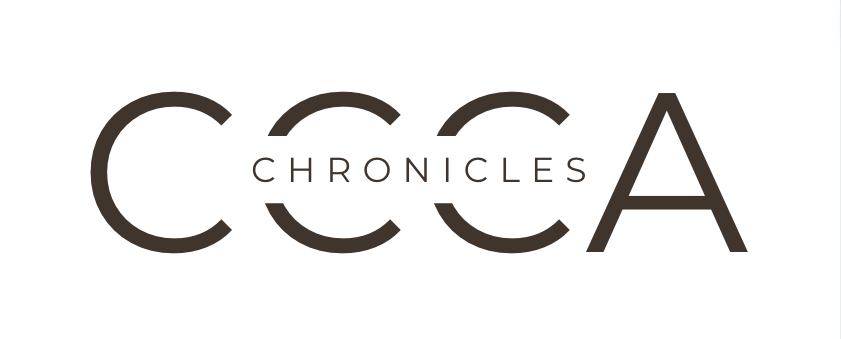Resources for people with CCCA
Finding support and authoritative resources to navigate CCCA isn't as easy as it should be. I've had to do a lot of hunting and rely on tips from other people. I want to make things easier on all my beautiful readers by compiling the list of resources I wish I'd known about early in my diagnosis.

Finding support and authoritative resources to navigate central centrifugal cicatricial alopecia – CCCA – isn't easy. It took me months to find reliable resources to locate culturally competent doctors, scientific research, medical and alternative remedies, and other useful tips.
I want to make things easier on all my beautiful readers by compiling the list of resources I wish I'd known about early in my diagnosis.
Dermatologists
If you're looking for a Black dermatologist, the Black Dermatologist Directory can help you find one anywhere in the world. Many thanks to Dr. Achiamah Osei-Tutu of New York for creating this website.
If you want to locate a dermatologist in your area – Black or otherwise – check out docs4hair. Within the "Specialties" field of the search bar, you can select "Hair Loss Research" and "Hair Loss Advocacy" to narrow the list. You can also use that same field to filter on specific treatments. Many thanks to Drs. Achiamah Osei-Tutu and Meena Singh for this website.
FaceBook Groups
FaceBook has a few private groups for people with CCCA. Search for "central centrifugal cicatricial alopecia," and you'll see the following options:
Central Centrifugal Cicatricial Alopecia (CCCA)
Diagnosis Central Centrifugal Cicatricial Alopecia (CCCA)
Living With Central Centrifugal Cicatricial Alopecia (CCCA)
Central centrifugal cicatricial alopecia (CCCA) Struggles
That search will also turn up other groups for alopecia, broadly, that you might consider joining.
I find the private groups on FaceBook to be an excellent resource for giving and receiving support. I've learned more about remedies and resources from members of these groups than I have from my own doctors.
Instagram Accounts
Thought I don't find Instagram to be a great source of information on CCCA, there are a number of dermatologists and stylists experienced in treating the condition who maintain a presence on the platform. There are far too many to name, so I recommend that you search for #centralcentrifugalcicatricialalopecia and explore stories and reels to find practitioners and patients who resonate.
Several people I follow, just to get you started are:
Dermatologists: Dr. Crystal Aguh - crystalaguhmd (widely published in scientific journals), Dr. Chesahna Kindred - kindrederm (has her own product line), Dr. Yolanda Lenzy - dryolandalenzy (sits on the Board of the Scaring Alopecia Foundation), Dr. Hope Mitchell - drhopemitchell (pediatric focus), and Dr. Meena Singh - drmeenasingh (specializes in hair restoration and transplantation).
Stylists: anitarestoreshair (specializes in hair product ingredient analysis as it relates to hair loss), susanlpeterkin (committed to educating stylists about hair loss)
Patient Education and Advocacy
Docs4hair is not just an option for finding dermatologists; it's also an option for patient education. You can read about hair loss disorders and medical treatments, read a list of natural therapies you can look into own your own, and learn out about special events.
The Scarring Alopecia Foundation (SAF) has a membership of more than 7,000 patients. The website describes the organization's mission as "providing education and patient support, raising public awareness and advancing and promoting research." When you sign up for their e-news – it's free – "You will receive access to SAF’s newsletter, e-news blasts with the latest and greatest information, invitations and announcements to patient support meetings and conferences, and inspirational member stories to fill your heart." The CCCA support group meets monthly. Also, here's a handy patient guide to understanding treatments for scarring alopecia, including CCCA.
Scientific Research and Scholarly Articles
Scientific articles and books on CCCA are accessible through PubMed – a website maintained by the National Center for Biotechnology Information at the U.S. National Library of Medicine. While you can read every abstract for free, you will often need to pay hundreds of dollars for access to full-text articles. If you want to limit your search to free full-text articles, use PubMed Central.
For a good overview of CCCA from a scientific perspective – etiology, epidemiology, pathophysiology, histopathology, clinical findings, evaluation techniques, treatment/management, differential diagnosis, and more – I recommend this article on Bookshelf, another subset of PubMed.
What Can You Add?
If there are resources you know of that would be helpful to add to this list, please share them in the comments. We'll use our collective knowledge to support one another.
Wishing you grace on this journey,
Lisa
P.S. I appreciate you being here. If you found this newsletter helpful, please share it with others and leave me a comment. You can also visit my website to gain access to all my posts. Signup is free.
Disclaimer: I am a Black woman living with central centrifugal cicatricial alopecia who shares thoughts, stories and ideas with other Black women navigating this condition for informational purposes only. I’m not a doctor or licensed or certified professional, therefore nothing in my posts – explicit, implicit, by implication, or in reference – is intended to constitute, or be a substitute or replacement for, licensed, professional, medical care. Always seek the advice of your dermatologist or other qualified provider with any questions you have regarding your health, CCCA, and treatments for CCCA, be they medical or otherwise, and before making any decisions about your health care. Never disregard professional medical advice or delay in seeking it because of something you have read in my posts.
